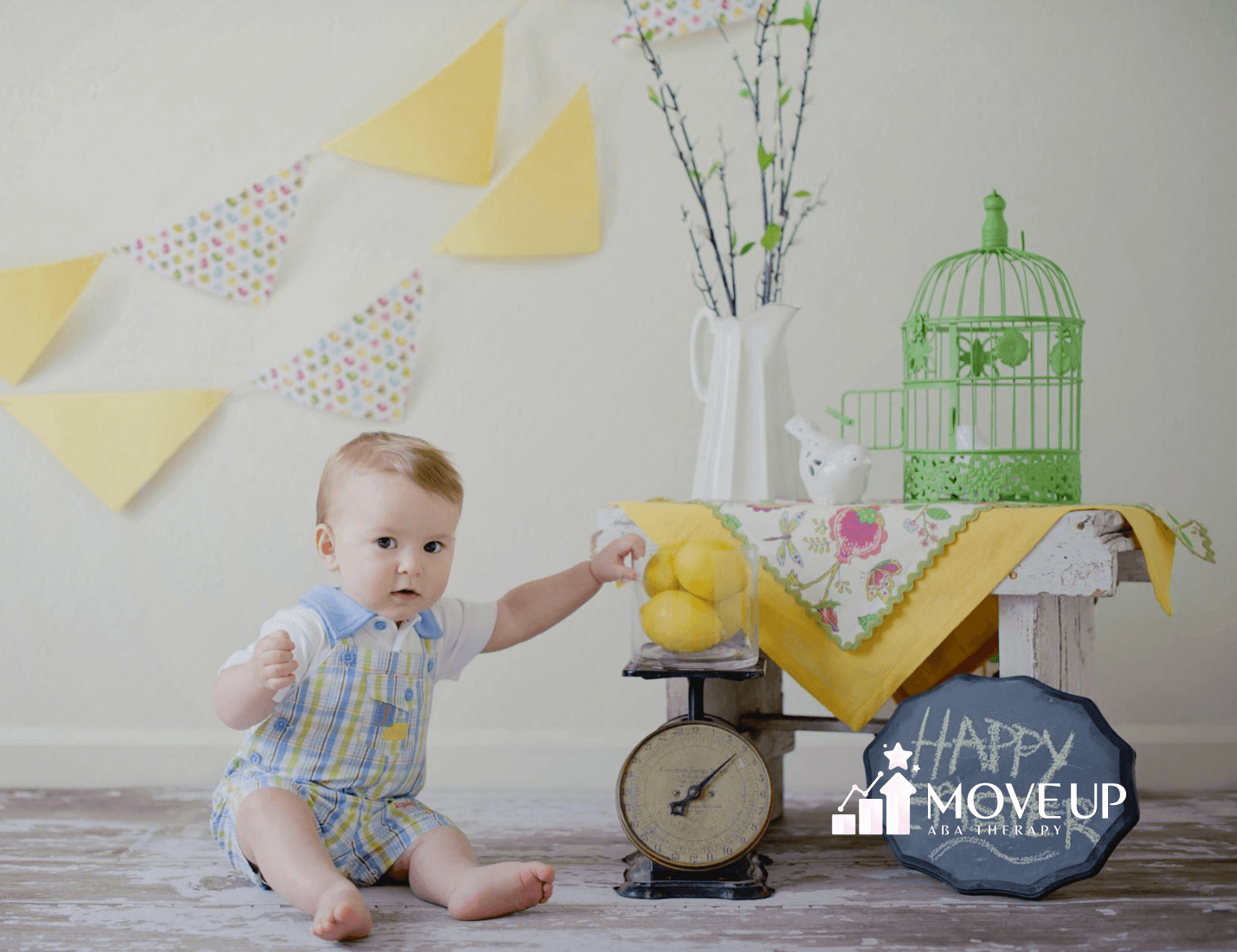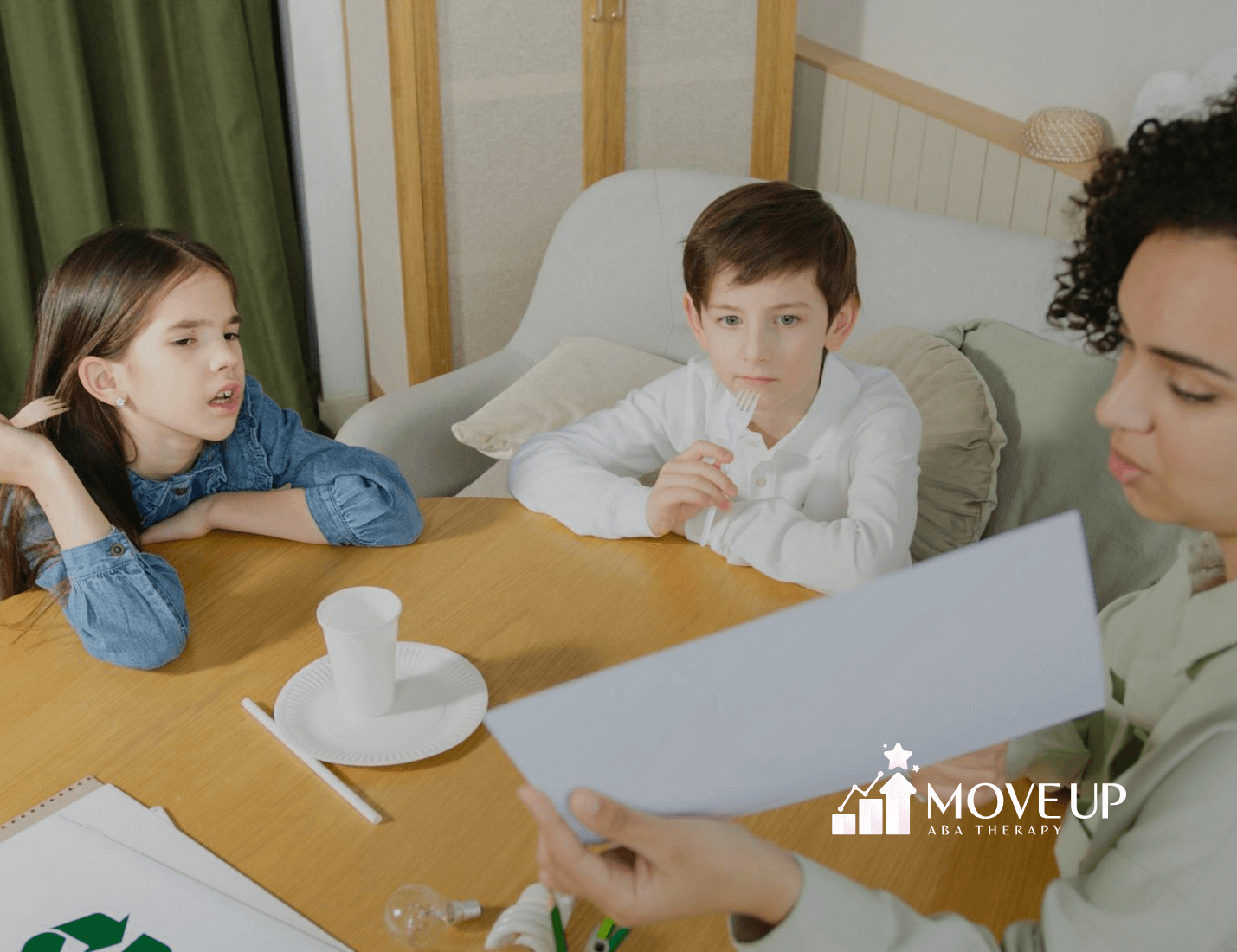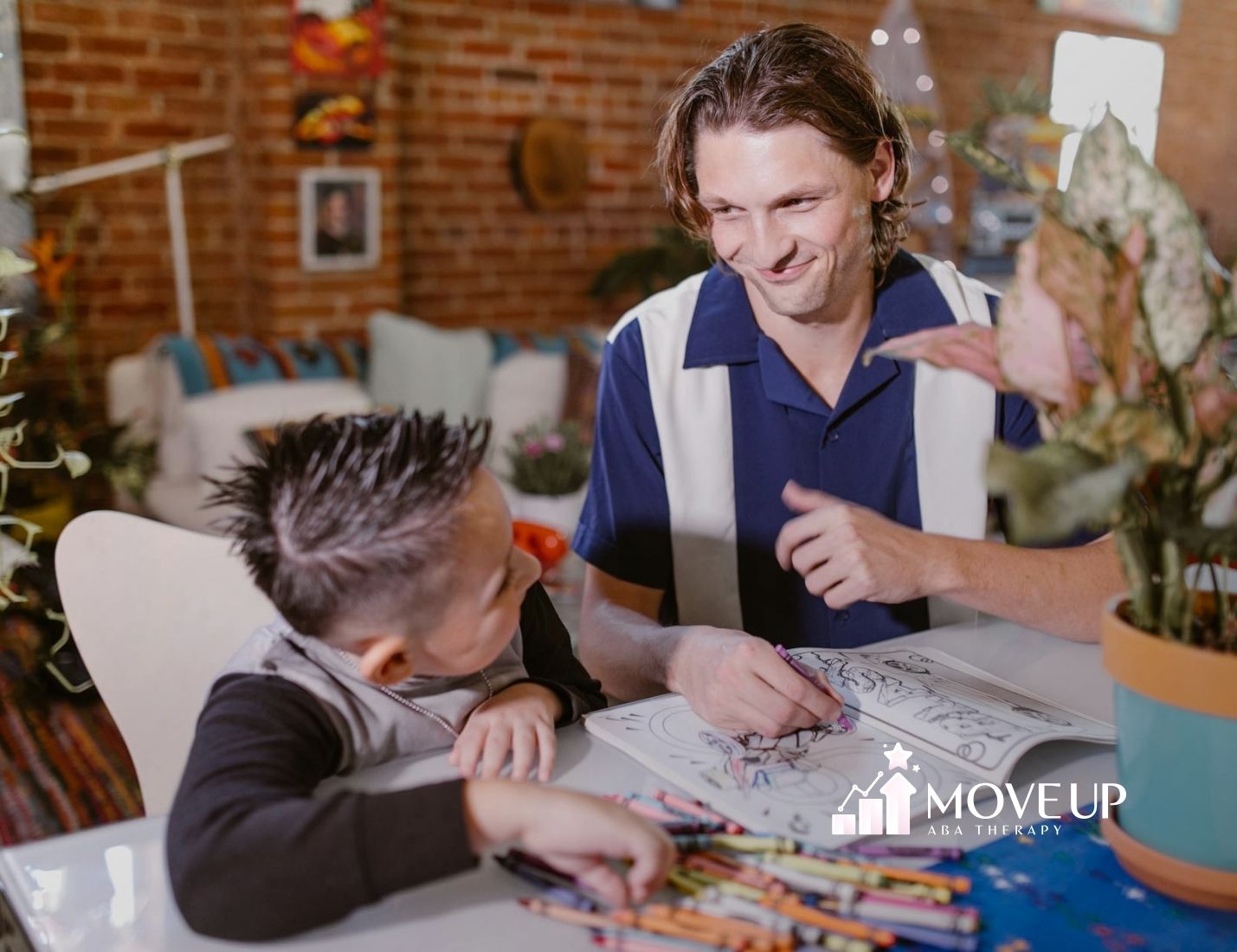Your little one is a whirlwind of energy, exploring the world with boundless curiosity. But as kindergarten approaches, a new question tugs at your mind: is your child ready for the structured environment of school? For many toddlers on the autism spectrum, that transition can feel daunting. Here’s where home-based ABA therapy can be your secret weapon!
Unlike traditional therapy centers, home-based ABA brings qualified professionals right to your doorstep, creating a personalized learning experience that seamlessly integrates with your child’s daily routine. In this article, we’ll delve into the exciting world of home-based ABA therapy, exploring how it can empower your toddler to thrive and blossom as they embark on their academic journey!
The Importance of School Readiness
School readiness is not solely about academic knowledge; it encompasses a range of skills and abilities that enable children to thrive in a classroom setting. These skills include social, emotional, behavioral, and cognitive aspects.
For toddlers with developmental delays or conditions like ASD, achieving school readiness may require specialized intervention, and ABA therapy is a well-established approach to address these needs.
- Social Skills: Toddlers entering school need to interact with peers, follow directions, and engage in cooperative play. ABA therapy can help children with ASD develop these crucial social skills.
- Communication Skills: Effective communication is vital for classroom success. ABA therapy can target language development, assisting toddlers to learn to express their needs and ideas.
- Behavioral Self-Regulation: Many toddlers with ASD struggle with impulse control and emotional regulation. ABA therapy teaches strategies for self-control, which is essential in a classroom setting.
- Cognitive Skills: Early cognitive development, including problem-solving and pre-academic skills, is fostered through ABA therapy, preparing children for academic learning.
What is ABA Therapy?
Applied Behavior Analysis (ABA) therapy is a systematic and evidence-based approach to understanding and modifying behavior.
It is particularly effective in teaching skills, reducing challenging behaviors, and improving social interactions, making it an ideal choice for preparing toddlers for school.
- ABA Principles: ABA therapy operates on the principles of behaviorism, which involve identifying target behaviors, breaking them down into manageable steps, and providing positive reinforcement to encourage desired behaviors.
- Individualized Treatment: ABA therapy is highly individualized. Each child’s therapy plan is tailored to their unique strengths, challenges, and developmental goals.
Data-Driven: ABA therapists collect and analyze data to monitor progress continually. This data-driven approach ensures that therapy is effective and adaptable to the child’s changing needs.
Benefits of Home-Based ABA Therapy
Home-based ABA therapy offers a unique and advantageous approach to supporting children with Autism Spectrum Disorder (ASD) compared to traditional center-based therapy. Here are some key benefits to consider:
- Comfort and Familiarity: The familiar environment of your home provides a sense of security and comfort for your child. This can minimize anxiety and allow them to focus better on learning new skills.
- Personalized Learning: Therapists can tailor the therapy program to your child’s specific needs and routines within your home setting. This allows for a more targeted and effective intervention.
- Improved Generalization: Skills learned at home can be directly practiced and generalized to everyday situations. This fosters greater independence and overall development.
- Parental Involvement: Parents become active participants in the therapy process. Therapists can train parents on ABA techniques, enabling them to consistently reinforce skills throughout the day.
- Reduced Disruptions: Travel time and transitions between locations are eliminated, minimizing disruptions to your child’s routine and allowing for more therapy time.
- Focus on Daily Living Skills: Therapists can integrate therapy into daily activities like dressing, mealtime, and playtime, making learned skills more functional and relevant.
- Stronger Family Bonds: The therapy process can strengthen family bonds by providing opportunities for parents and siblings to learn and practice effective communication and interaction strategies.
Additionally, home-based ABA therapy can be particularly beneficial for younger children, especially toddlers. The comfort of their own home can ease anxieties associated with new environments and allow therapists to build rapport more readily.
Home-Based ABA Therapy: The Basics
Home-based ABA therapy brings the benefits of ABA intervention into the familiar environment of a child’s home. It provides a comfortable and structured setting for children to learn and practice essential skills. Here’s how home-based ABA therapy for toddlers works:
Assessment
The process begins with a comprehensive evaluation conducted by a certified ABA therapist. This assessment identifies the child’s strengths and areas that require improvement.
Individualized Plan
An individualized treatment plan is developed based on the evaluation. This plan outlines specific goals and strategies to address the child’s needs.
Regular Sessions
ABA therapy involves one-on-one sessions between the child and a trained therapist. These sessions typically occur in the child’s home, making it a familiar and comfortable environment.
Structured Activities
During sessions, the therapist engages the child in structured activities that target specific skills, such as communication, social interaction, and self-regulation.
Positive Reinforcement
An essential element of ABA therapy is using positive reinforcement. When a child exhibits the desired behavior, they are rewarded with praise, tokens, or other reinforcers.
Data Collection
Therapists track progress by collecting data during each session. This data helps adjust the treatment plan as needed to ensure continued progress.
Preparing Your Toddler for School with Home-Based ABA Therapy
Now that we have a foundational understanding of home-based ABA therapy let’s explore how this intervention can effectively prepare your toddler for school:
Building Communication Skills
ABA therapy can target language development, helping toddlers with ASD learn to communicate their needs, express themselves, and engage in meaningful conversations.
Enhancing Social Interaction
ABA therapists work on improving social skills, teaching children how to initiate and respond to interactions, share, take turns, and play cooperatively with others.
Emotional Regulation
Many children with ASD struggle with emotional regulation. ABA therapy teaches strategies to manage emotions, reduce meltdowns, and promote self-control.
Following Instructions
A significant part of school readiness involves following teacher directions. ABA therapy helps children develop the ability to understand and follow instructions effectively.
Preparing for Transitions
School routines involve various transitions throughout the day. ABA therapy can help children transition between activities, essential for classroom success.
Pre-Academic Skills
ABA therapists can introduce pre-academic skills, such as identifying letters, numbers, shapes, and colors, to provide a foundation for future learning.
Behavioral Self-Management
ABA therapy equips children with strategies to self-regulate their behavior, promoting appropriate conduct in a classroom setting.
Building Independence
ABA therapy fosters independence by teaching children essential life skills, such as dressing themselves, using the restroom independently, and managing personal belongings.
The Role of Parents in Home-Based ABA Therapy
Parents play a crucial role in the success of home-based ABA therapy. Here are some ways in which parents can actively support their child’s therapy and school readiness:
Collaboration with Therapists
Maintain open communication with ABA therapists. Share observations and insights about your child’s progress and challenges.
Consistency
Implement strategies and techniques learned from ABA therapy consistently in daily routines. Surface helps reinforce learning.
Generalization
Work with the therapist to ensure that skills learned in treatment generalize to various settings and situations, including those encountered in a school environment.
Participation
Encourage active involvement in therapy sessions. Observe and engage with your child during sessions to learn practical techniques for supporting their development.
Advocacy
Advocate for your child’s needs in the school system. Collaborate with educators to create an Individualized Education Program (IEP) that aligns with the goals of ABA therapy.
Home Environment
Create a home environment that supports learning and skill development. Provide opportunities for practice and reinforcement of skills outside of therapy sessions.

Overcoming Challenges in Home-Based ABA Therapy
While home-based ABA therapy offers numerous benefits, it may also come with challenges. Being aware of these challenges and addressing them proactively can help ensure a positive experience:
Time Commitment
Home-based ABA therapy requires a significant time commitment. Ensure you have the time and resources to support your child’s therapy.
Consistency
Maintaining consistency in implementing ABA strategies can be challenging. It’s essential to stay committed to the therapy plan.
Generalization
Ensuring that skills learned in therapy generalize to other settings may require additional effort and support.
Finding Qualified Therapists
Identifying and securing a qualified ABA therapist may take time and research. Seek recommendations and thoroughly vet potential therapists.
Insurance and Funding
Investigate insurance coverage and funding options for ABA therapy. It’s essential to understand the financial aspects of treatment.
How To Prepare Home For In-Home ABA Therapy
After knowing all about in-home ABA therapy, it’s time to prepare your home for it. Getting ready for your child’s in-home ABA therapy sessions doesn’t have to be overwhelming. Here are some simple steps to create the perfect space for learning and success:
Calm and Clear
Designate a quiet area free from distractions. This could be a playroom, a corner of the living room, or even a specific bedroom space.
Learning Essentials
Stock the area with age-appropriate toys, manipulatives, and learning materials that align with your child’s therapy goals.
Minimize Clutter
Tidy up the space and remove unnecessary clutter. A clear and organized environment can help your child focus and reduce anxiety.
Comfort is Key
Ensure the space is comfortable for both your child and the therapist. Consider lighting, temperature, and furniture arrangements.
Consistency Matters
Maintain a consistent layout for the therapy area. This familiarity will help your child feel secure and ready to learn.
Conclusion
As you embark on the exciting endeavor of preparing your toddler for their school journey, remember that you’re not alone in this process. Move Up ABA is here to provide comprehensive support through home-based ABA therapy, offering a proven and structured approach to nurturing your child’s development and school readiness.
At Move Up ABA, we believe in the power of collaboration between our dedicated ABA therapists and actively involved parents. Together, we unlock the keys to your child’s success, fostering an environment where they can thrive in the classroom, acquire essential life skills, and confidently embrace a journey of learning and discovery.
Your dedication and patience, coupled with the expert guidance of ABA therapy, play a pivotal role in empowering your toddler for success. The structured approach of our home-based therapy not only addresses developmental milestones but also ensures that your child is well-prepared for the challenges and joys of the classroom environment.
Don’t wait to embark on this educational journey. Contact Move Up ABA today to begin the process of shaping a bright and prosperous future for your little one. Together, let’s ensure your child’s success in the classroom and beyond.
FAQs
What is the recommended age to start home-based ABA therapy for a toddler with developmental challenges like ASD?
ABA therapy can be initiated as early as 18-24 months, but the ideal time depends on the child’s needs and developmental milestones.
How often should ABA therapy sessions take place, and what is the typical duration of each session?
The frequency and duration of ABA therapy sessions vary based on the child’s needs and the therapist’s recommendations. Typically, sessions may occur 10-20 hours per week, with each session lasting around 1-3 hours.
What can I expect during a typical ABA therapy session at home?
- Structured activities that target specific skills.
- Positive reinforcement for desired behaviors.
- Data collection.
- Ongoing assessment of the child’s progress.
Is home-based ABA therapy effective for all children with developmental challenges, or are there specific criteria for eligibility?
ABA therapy can be effective for a wide range of developmental challenges, but eligibility is often determined through assessments conducted by qualified professionals. The therapy plan is highly individualized to address the child’s specific needs.
How can I find a qualified ABA therapist for my child’s home-based therapy sessions?
To find a qualified ABA therapist for your child’s home-based therapy with Move Up ABA:
- Contact Move Up ABA for detailed information.
- Schedule a consultation to assess your child’s needs.
- Inquire about the therapist’s expertise, qualifications, and credentials.
- Ensure an individualized approach to therapy.
- Emphasize the importance of parent involvement.
- Ask for success stories or testimonials.
- Seek transparent communication and regular updates.
- Confirm flexibility in scheduling home-based sessions.
- Emphasize collaboration between you, your child, and the therapist.
What is the role of my child’s school in supporting ABA therapy and school readiness?
Schools play a critical role in supporting children who receive ABA therapy. Collaboration with teachers and creating an Individualized Education Program (IEP) can help align school goals with the child’s therapy objectives.
Can I combine home-based ABA therapy with other interventions or treatments to further support my child’s development?
Yes, combining ABA therapy with other interventions or treatments is possible, depending on your child’s needs. Consult with your child’s ABA therapist and healthcare team to determine the most practical combination of interventions.





